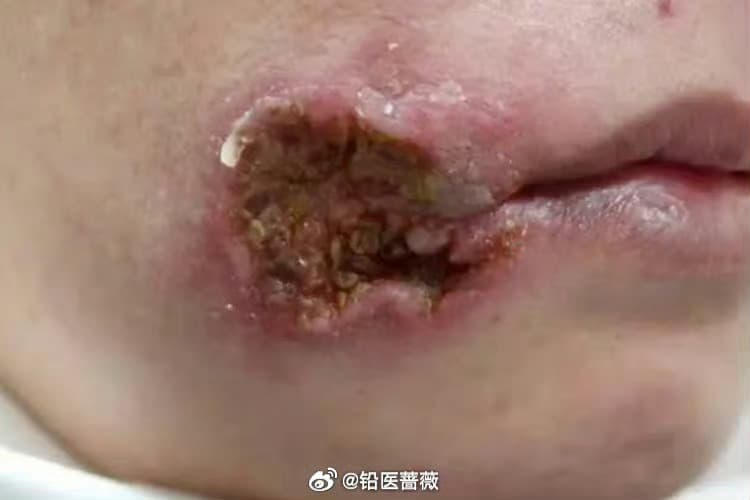Unlikely Syphilis Transmission in China: Hygiene, Child Safety, and Gratitude in the Spotlight
A two-year-old boy in Hangzhou, China has been diagnosed with syphilis, a sexually transmitted infection, raising concerns about the potential transmission from an unlikely source - the child's grandmother. The child's parents tested negative for the disease, but the grandmother's test came back positive. The grandmother reportedly had a habit of chewing food for the child, which led to speculation about the potential link between her infected saliva and the child's contraction of the disease.

18 May 2024
According to medical experts, syphilis can be transmitted through direct contact with an infected person's lesions, blood, or bodily fluids such as saliva. In this case, if the grandmother had open sores in her mouth or was experiencing a syphilis rash, there is a possibility that the bacteria could have been passed on to the child through chewed food. However, this mode of transmission is relatively rare and requires close contact with an infected person's mucous membranes. The case highlights the importance of personal hygiene and the need to maintain a clean and healthy environment, especially for young children. Syphilis is curable with appropriate antibiotic treatment, and early detection and treatment can prevent the progression of the disease to more severe stages.
Meanwhile, in a separate incident, a 12-year-old girl in Shanghai was allegedly harassed by a male college student who asked her for explicit photos and forcibly kissed her. The incident has sparked outrage on social media, with many calling for stricter punishment for the perpetrator. The school where the student is enrolled has issued a statement saying that it is handling the matter internally and that the student has been detained by the police. The incident is a stark reminder of the pervasive issue of sexual harassment and the need to protect children from predators. The girl's age and vulnerability made her an easy target, and the incident underscores the importance of educating children about their rights and the dangers of online predators. It also highlights the need for schools and parents to work together to ensure the safety and well-being of children, both online and offline.

In other news, an 88-year-old doctor in Wuhan has made headlines for his generous act of donating his body to his alma mater, Wuhan University Medical School. The doctor, Wang Qingzhong, said that he wanted to make a small contribution to the medical field and repay the kindness of the school and the Communist Party for his education and upbringing. The gesture has been praised on social media as a selfless act of gratitude and a reminder of the importance of paying it forward. In conclusion, these stories from China serve as a reminder of the importance of personal hygiene, child safety, and the need to show gratitude and kindness towards others. The case of the child with syphilis highlights the need for vigilance in maintaining cleanliness and hygiene, while the incident of sexual harassment underscores the need to protect children from online predators. The donation of the 88-year-old doctor's body serves as a reminder of the importance of gratitude and paying it forward. These stories are a reflection of the diverse and complex issues that affect society, and they highlight the need for continued awareness and action to address these challenges.

Share this article
Related Articles

China’s “Ugly Hour” Push: Viral Hashtag Sparks Nationwide Call for 1‑3 a.m. Bedtimes and New Sleep‑Health Policies
By Trending on Weibo
Health
15 Sept 2025

Actress Tang Yan Named First Infant Respiratory Health Ambassador in China’s Nationwide “Good Breathing Protection” Campaign
By Trending on Weibo
Health
13 Sept 2025

Veteran Chinese Actor You Benchang’s Nursing‑Home Move Signals a Shift in China’s Attitude Toward Elder Care.
By Trending on Weibo
Health
9 Sept 2025
Viral Chinese Hashtag Raises Awareness of “Chemical Damage” Caused by Severe Diarrhea.
By Trending on Weibo
Health
4 Sept 2025
Viral “No‑Exercise” Weight‑Loss Hacks Sweep China: Seven Simple Habits Spark Debate
By Trending on Weibo
Health
2 Sept 2025